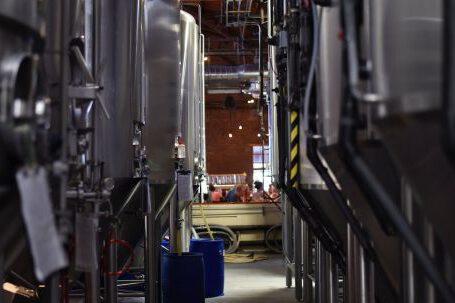In today’s fast-paced and ever-changing business landscape, organizations need to adapt quickly to stay competitive. Traditional project management approaches often fall short in this regard, as they focus on rigid plans and processes. This is where Agile methodology comes in, offering a flexible and iterative approach that fosters continuous learning and improvement. By embracing Agile, organizations can cultivate a culture of continuous learning, enabling them to respond effectively to evolving customer needs and market dynamics.
The Agile Mindset: Embracing Change
At the heart of Agile methodology is the Agile mindset, which emphasizes the importance of embracing change rather than resisting it. In traditional project management, change is often seen as a disruption to the plan, leading to delays and increased costs. In Agile, change is seen as an opportunity for improvement and innovation. By embracing change, organizations can learn from their experiences and make adjustments to deliver better products and services.
Iterative and Incremental Development: Learning from Feedback
Agile methodology employs an iterative and incremental approach to development, allowing for frequent feedback and learning. Instead of waiting until the end of a project to review and assess its outcomes, Agile encourages continuous feedback throughout the development process. This enables organizations to identify and address issues early on, ensuring that they deliver value to customers in a timely manner. By learning from feedback, organizations can make informed decisions and adapt their approach to meet changing requirements.
Cross-functional Collaboration: Sharing Knowledge and Expertise
A key aspect of Agile methodology is cross-functional collaboration, bringing together individuals with diverse skills and expertise. By collaborating closely, team members can learn from each other, sharing their knowledge and expertise. This not only enhances the quality of the work but also promotes a culture of continuous learning within the organization. Through collaboration, organizations can leverage the collective intelligence of their teams, enabling them to solve complex problems and innovate.
Empirical Process Control: Making Data-driven Decisions
Agile methodology promotes empirical process control, which involves making decisions based on data and evidence rather than assumptions. This is achieved through the use of metrics and feedback loops, allowing organizations to measure the progress and effectiveness of their work. By collecting and analyzing data, organizations can gain valuable insights that inform their decision-making process. This data-driven approach ensures that organizations are continuously learning and improving, making informed decisions based on real-world outcomes.
Supportive Leadership: Fostering a Learning Culture
To cultivate a culture of continuous learning, organizations need supportive leadership that encourages experimentation and learning from failures. Agile methodology promotes servant leadership, where leaders empower their teams and create a safe environment for experimentation and innovation. By fostering a learning culture, leaders can encourage their teams to take risks, learn from their mistakes, and continuously improve. This creates an environment where individuals feel comfortable sharing their ideas, asking questions, and challenging the status quo.
Conclusion: Embracing Agile for Continuous Learning
In a rapidly evolving business landscape, organizations must embrace Agile methodology to cultivate a culture of continuous learning. By embracing the Agile mindset, organizations can adapt to change, learning from their experiences and making improvements. Through iterative and incremental development, organizations can gather frequent feedback, enabling them to deliver value to customers in a timely manner. Cross-functional collaboration promotes knowledge sharing and expertise, enhancing the collective intelligence of teams. Empirical process control ensures that organizations make data-driven decisions and learn from real-world outcomes. Finally, supportive leadership fosters a learning culture, encouraging experimentation and continuous improvement. By embracing Agile methodology, organizations can create a culture of continuous learning, enabling them to thrive in an ever-changing business environment.





